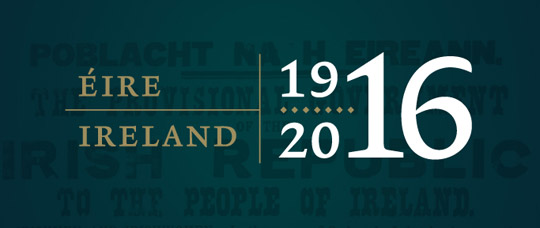Statement from the Irish Catholic Bishops’ Conference
“Churches have a particular responsibility to bring a message of hope to those who are suffering and those who are feeling disconnected from society … In 2016 we need to hear a renewed commitment to
peace articulated from all sectors of society, supported by a clear analysis of the remaining obstacles to peace, the threats to social cohesion, and the steps we need to take as a society to address them.”
Message
During the forthcoming year of 2016 people across the island of Ireland will mark the centenaries of the Easter Rising of April 1916, and the Battle of the Somme, which began the following July. These events had a profound impact on national identity and shaped the political landscape in ways that can still be felt one hundred years later. The commemorations thus have the potential to stimulate much-needed reflection on where we are as a society and what we want to achieve for the future. Churches have a particular responsibility to outline the Christian values that shape our understanding of these transformative events and provide spaces where the challenging questions raised can be addressed in a spirit of understanding and compassion.
We are now over halfway through the ‘decade of centenaries’, a period that was approached with some trepidation because of the risk of reopening old wounds; thankfully these fears have not materialised. The centenaries marked to date have provided a context for mature reflection and an opportunity to rediscover and re-engage with the experiences, hopes and fears of the generations that have gone before us. Particularly positive have been those initiatives that have engaged young people in learning about this important period of our history.
The 1916 centenaries will be more challenging still, bringing to the fore the way in which the militarisation of politics and government – both on this island and across the world – impacted on society. There is much that separates these two events, but there are also important common denominators, most notably the tragic loss of life – primarily the lives of young people, many of whom were prepared to give their lives for their values, for their vision of the nation and its place in the world.
As we approach these centenaries, the impact of armed conflict can still be felt, both here and throughout Europe. In their endorsement of the Good Friday Agreement, and support for local and international peace initiatives in the years since, the overwhelming majority of people throughout the island of Ireland have expressed their commitment to non-violent means of conflict resolution. It is time to challenge ourselves, however, to reflect on whether we have been sufficiently courageous in promoting a radical culture of peace.
Historians, archivists and local historical societies have been working to make heard the voices of the past, putting the experience of those who participated in these events at the heart of the discussion. An important theme emerging is the centrality of Christian faith in shaping people’s vision for society and what it means to be a citizen. A related issue is the prominence of social justice in that vision – the values of freedom, human rights, solidarity and the common good were espoused by people from different traditions and identity. It must not be forgotten that issues of identity were only part of a wider debate on equality and social and economic rights.
In the events of 1916, and in the years that followed, we can see how these values were obscured by the use of violence. There have been significant steps towards reconciliation, at both the local and international level, but a legacy of suffering remains. Many victims feel their pain is being ignored by the wider society in the hope that we can somehow move past it without having to face the difficult and uncomfortable questions posed. There is an important role for Churches in nurturing healing conversations. Remembrance can take many different forms. Important questions in the planning of such events must be: Will this take us closer to a more caring and compassionate society? How inclusive is our approach? Who does not feel able to participate, and why?
These centenaries will coincide with the Holy Year of Mercy. In announcing this Jubilee Year, Pope Francis recalled how the example of Christ in his love for the sinner, which goes beyond the demands of justice, “urges each of us never to stop at the surface of things, especially when we have a person before us. We are called to look beyond, to focus on the heart in order to see how much generosity everyone is capable of” (Announcement of the Jubilee of Mercy, March 2015).
The challenges before us as a society today – addressing violence and injustice, combatting poverty and social exclusion, adopting a fair and sustainable approach to the consumption of goods and resources, welcoming refugees and promoting respect for religious faith, culture and identity – will require generosity of spirit and an openness to new relationships. Churches have a particular responsibility to bring a message of hope to those who are suffering and those who are feeling disconnected from society. We remember Christ’s message to His disciples when He found them gathered in fear: “Peace be with you” (John 20: 19, 21, 26).
In 2016 we need to hear a renewed commitment to peace articulated from all sectors of society, supported by a clear analysis of the remaining obstacles to peace, the threats to social cohesion, and the steps we need to take as a society to address them.
ENDS
- The Irish Catholic Bishops’ Conference is the assembly of the Bishops of Ireland.


